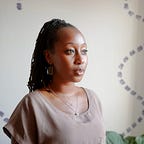Property Law As Urban Development In Poor, Self-Building Communities
Project Lead/Organization Name: Hernando de Soto, Institute for Liberty and DemocracyInstitute for Liberty and Democracy (ILD) in Lima, Peru:
works with developing countries to implement property and business rights reforms that provide the legal tools and institutions required for citizens to participate in the formal national and global economy. (ILD website)
Peruvian economist Hernando de Soto noticed in urban cities in developing countries there was a lot of informal architecture and community-building happening in impoverished urban areas. His research is on informal economies. People were building their own houses, finding reusable resources, and building their communities from the ground up out of necessity. They were not in the government’s system, and did not want to use it because it was complicated and provided limitations and restrictions. On the other hand, there were other self-built communities that became apart of the legal system, and as a result, flourished in ways the former could not. de Soto realized that property laws and business rights are integral in self-initiated community development. de Soto understands the way communities pull themselves out of poverty is by self-determination in conjunction with state rights and benefits.
ILD is about property rights. Rights to build, to develop, to scale, to thrive. ILD seeks to merge the “illegal” (or informal) economy of community development with the legal economy to create bottom-up solutions that make sense for the residents of the community and are inline with government laws. These self-built communities are already resilient and resourceful so imagine what could be done with legal rights and resources. ILD’s work is not only with self-built communities — it works with impoverished urban communities all over the world. ILD is empowering communities to have ownership over how they develop their communities and how they make economic transactions, while still working within legal limits and have access to resources to grow sustainably.
What ILD realizes in their property paradigm is:
for real sustainable economic growth to occur and for the rule of law to gel, widespread property rights were more important to development than suspected. For the ILD, the laws and records that document property arrangements generate the economic facts humans need to control, share, and combine them to produce higher valued combinations. (ILD website)
This means effective and sustainable urban development cannot happen unless property laws allow for agency, ownership, and growth. ILD is an amazing example of how integral urban development is within all aspects of a country’s system. There are so many ways to support community-led development, and making sure laws allow for and encourage community-based solutions that are generated and initiated by the community is a vital part.
